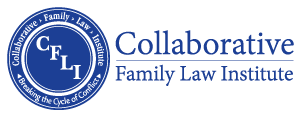COMMITTEE CONSIDERS COLLABORATIVE LAW AS PART OF FAMILY LAW CERTIFICATION
Originally posted by the Florida Bar
By: Gary Blankenship
A request from multiple past chairs of the Family Law Section to include collaborative law questions on the annual family law certification exam is getting a favorable response from the Marital and Family Law Certification Committee.
However, the request came too late for the next family law certification exam, which is scheduled for March.
“My immediate thought was ‘Yes, let’s absolutely put it in there,’” said committee Chair Jennifer Ficarrotta. But she added another committee member reminded her the committee has already posted a study guide, which doesn’t include collaborative law materials, for the upcoming exam.
“One of the things that is so hard about the family law certification exam is there is so much to cover,” Ficarrotta said.
To deal with that, “you can go on The Florida Bar website and it will give you a list of the topics and subtopics and the statute numbers to study,” she said. “I do know people who print that out far in advance and start to study.
“We could have drafted it [collaborative questions] on the test, but it isn’t already part of the study materials. We wanted to be as transparent as possible for studying.”
Ficarrotta, whose practice includes collaborative law, said she didn’t see any problem for including the subject on the 2022 exam.
That’s fine with Miami attorney Evan Marks, the 2004-05 chair of the Family Law Section who spearheaded the petition signed by 19 other past chairs going back as far as 1984-85.
He said the Legislature approved collaborative practice laws, in F.S. Chap. 61.55-58, in 2016 and the following year family law procedural rules as well as Bar rules were amended to accommodate the statutory changes.
Collaborative practice has only grown since then.
“We have an ethical duty as lawyers to advise clients on all available methods of resolving disputes,” Marks said. “Particularly now when you’re board certified and call yourself a specialist, you better know about the statute and how it works.”
Collaborative law differs from contested litigation in that the parties sit down with their lawyers and neutral experts, such as accountants and mental-health professionals, to work out an agreement. Unlike mediation, several sessions will be scheduled but each no longer than two hours to prevent the parties from being overwhelmed.
“The parties themselves conduct the discussion on what issues are important to them. It’s party driven and interest based,” Marks said. “We are able to get to the meat of the matters.”
It also offers more confidentiality and privacy for clients.
While its use is growing, “Collaborative family law is not going to replace litigation,” he added. “There are cases that are still going to be litigated and judges will have to make decisions. What it does do is it takes a lot of cases that shouldn’t be litigated out of the system.”
The rising interest in collaborative law, Marks said, is shown by the formation of the Florida Collaborative Family Law Institute and the Florida Academy of Collaborative Professionals. The former offers a listing of lawyers, financial professionals, therapists, and others in Southeast Florida who can help clients who want to try collaborative law. The latter is a statewide association of lawyers and mental-health and accounting professionals who are promoting the collaborative method for marriage dissolutions and seeking ways to expand it into other areas of law.
The support of the past section chairs, Marks said, shows how far collaborative law has come in a few years.
“It really makes a statement when you have people of the stature of these family law practitioners,” he said. “A lot of them have been practicing for 25, 30, or 40 years.”
Other former chairs signing besides Marks were Brenda Abrams, Ira Abrams, Renee Goldenberg, Deborah Marks, Ky Koch, Jeffrey Wasserman, Norman Levin, Caroline Black Sikorske, Richard West, Allyson Hughes, Scott Rubin, Peter Gladstone, Diane Kirigin, David Manz, Norberto Katz, Maria Gonzalez, Nicole Goetz, Abigail Beebe, and Amy Hamlin.
